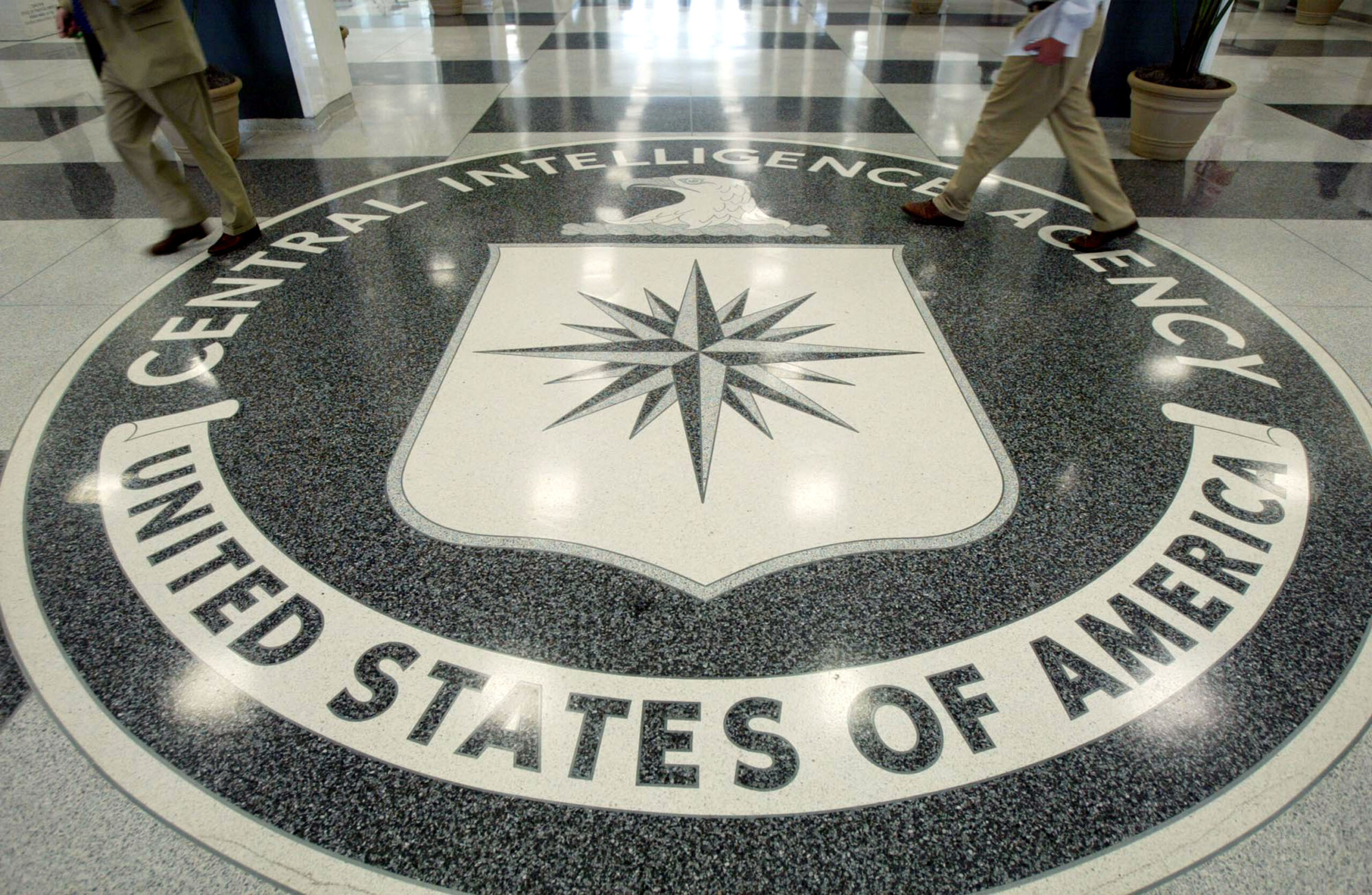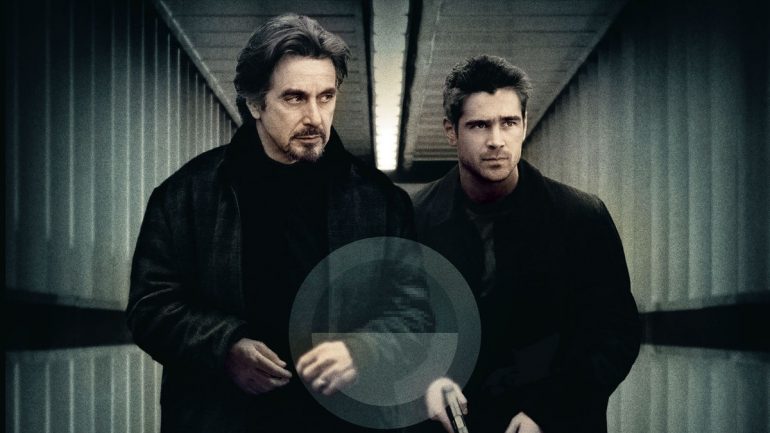Public relations is not something you imagine or even want a spy agency to be particularly good at, so on one level it’s reassuring that the CIA’s newly launched podcast is a prescription-strength soporific. Its crushing dullness is not even necessarily a barrier to success. Lots of popular podcasts are boring: for example, one of the most popular podcasts ever, hosted by an ex-comedian named Joe Rogan on an up-and-coming streaming service called Spotify, is tedious beyond my powers to describe. But the very existence of The Langley Files raises a more disturbing question: did the CIA just get divorced? Because nothing says “divorced dad energy” more than starting a podcast, and since the Twitter account the CIA opened in 2014 started off with a dad joke (see below), and because I remain unconvinced that the CIA knows how to use a smartphone any better than my dad, you know, questions arise.
Further, though we only have the first three episodes at present from which to draw conclusions, it’s pretty clear that someone in the CIA’s kid suggested that the agency start a podcast. Partly because I cannot find any better reason why the CIA would start a podcast, or at least this podcast.
The three available episodes do nothing to help in my search for motives. It’s not something they spent a lot of time or money on, clearly: the production budget must run into the tens of dollars. The intro music sounds like it’s been assembled from royalty-free Garageband loops — when such gems as “Secret Agent Man,” “Come Spy With Me,” “Spy In the House of Love,” and “Private Eyes,” off the top of my head, are just sitting there. And the hosts, Mark and Dee (first names only because of security) were clearly chosen for their personality-free, NPR-lite voices and ability to read chunks of bland propaganda with precisely enough flat affect to fool a polygraph. I do not know how many polygraphs are in the podcast audience, but I am certain that Mark and Dee managed to fool all of them.

Their first guest, appropriately, is current director of the CIA William J. “Billy Boy” Burns, who grappled with questions that maybe weren’t straight lifted from Chris Farley’s classic SNL skit where he would interview, like, Paul McCartney, and ask “Remember when you did that thing that was cool,” but might as well have been. I admit that I tuned out for chunks of the interview, so it’s possible Dee and Mark asked more than just scripted softballs, but in my defense it was hard to hear over the boot-licking.
I did learn that Bill “Free Willy” Burns claims to own and successfully operate a Roku and drive a 2013 Subaru, claims which, besides reinforcing my divorced dad theory, vigorously embrace the phrase “plausible deniability.” And also that he’s proud, among other things, that the agency correctly predicted that Russia would invade Ukraine; but offers no thoughts whatsoever on Elon Musk’s plan to end that war by taking it private. Disappointing.
Elsewhere in the first episode, Mark and Dee assert that the CIA invented the phrase “can neither confirm nor deny” (sometimes short-handed as the Glomar Response, for reasons you can easily Google) which as any person who has watched All the President’s Men can tell you is better known as a “non-denial denial” and roughly/journalistically the same as an admission – and thus not something you ought to be proud to have invented. On top of which, a cursory search shows the CIA absolutely did not invent, or even standardize “can neither confirm nor deny,” as the phrase appears as early as 1911 in the Boston Globe, but, hey, facts, what are they good for, especially when non-partisanly briefing the Commander-in-Chief about exciting developments in world-wide catastrophes?
And yet! The CIA wants you to believe that they invented this phrase, so much that when it opened a Twitter account in 2014 (one year after Mr. Burns either bought or did not buy his Subaru), its first tweet was “We can neither confirm nor deny that this is our first tweet.” I live near a garden center that has a sign out front that changes weekly – it’s the highlight of my Monday – whose content is clearly drawn from one of those 1001 Dad Jokes books (an example: “At the Comedy and Philosophy Conference they laughed more than they thought”). That sweetly pathetic garden center sign is regularly more funny than the CIA’s first tweet.

But you don’t want the CIA to be funny. You don’t look to the CIA for comedy any more than you look to the Supreme Court for justice. You do, however, and this is maybe where my expectations were incorrectly calibrated, look to the CIA for interesting stories about spying. Maybe they could float a few theories about Havana Syndrome, or tell us whether the Super Bowl really is fixed (it absolutely is) and by whom (a pod of whales? aliens?).
You want to hear Mark and Dee chugging Voodoo Ranger and dissecting the ins and outs of doing coups. You want to hear them pimping for MK Ultra, or explaining why noted counterintelligence chief James Jesus “And the Wee Donkey” Angleton, a world-historical drinker (one source claimed he was putting away 150-200 “units of alcohol” weekly) had a daughter named Tuffy who changed her name to Guru Sangat Kaur Khalsa. But instead, in episode three, you get almost fifteen minutes of corporate recruiter turned CIA drone, pun intended, Mike (again, no last names) saying the words “mission-oriented” and “tip of the spear” more times in a row than is advisable for his health, and explaining why most CIA recruits can’t work from home. If I want to waste twenty minutes of my life listening to the latest in business jargon, I can call my friend Tad, who does something I don’t understand in finance and gets excited listening in on Wall Street conference calls where CEOs use phrases like “I’d like to double-click on that” to mean “I want to hear more about that.”
Mike the Drone makes working for the CIA sound somehow less exciting than listening to a Wall Street conference call. This can’t be what the agency had in mind.

Back in the day, the CIA used its soft power in smarter or at least more entertaining ways, reportedly secretly backing avant-garde artists and writers, as well as a number of influential literary magazines like the Paris Review. An unsubstantiated rumor has it that SPIN itself was the beneficiary of CIA funding before the agency realized that a better way to leverage its spending was to promote a little-known punk band from Aberdeen, Wash. called Nirvana. But you won’t hear about that on this podcast – or anywhere else, for that matter, because there are some truths for which humanity may never be ready.
In the end, there’s really no way of knowing why the CIA decided to jump into the tepid waters of the podcast pool. Its gnomic intentions are part of its charm, and after all, this is the organization that spent a lot of time and presumably money erecting a museum to its exploits featuring a number of cool real-life James Bond-type gadgets, and then ensured that the museum is not open to the public. Going forward, I will not be liking, listening, or subscribing to “The Langley Files” (the name is really the only thing they got right – too bad the actual podcast fails to live up to its Bourne-esque flavor), but if you, like podcast hosts Dee and Mark, are low-key turned on by expanding opportunities in the CIA’s HR department, don’t let me kink-shame you.
For myself, no better recruiting tool for the CIA will ever exist than the criminally-underseen 1985 BBC mini-series Edge of Darkness. Joe Don Baker plays Darius Jedburgh, a whiskey-and-cigar addicted golf worshiper/CIA operative who jets off to overthrow unnamed Central American countries on one day and returns to England the next to steal some illegally stored plutonium, in the process heroically dying from radiation poisoning (and bullets), but not before playing 18 holes at St. Andrews and setting in motion a Gaia-directed planetary defense against humanity. He saves the world, in other words.
While it may be too much to ask “The Langley Files” to exhibit Jedburgh levels of swagger, an entertainment injection, perhaps administered by the tip of a passing umbrella, wouldn’t be a bad idea.
James Greer is the author most recently of the most excellent, hyper-literary thriller Bad Eminence, published by And Other Stories, 2022





